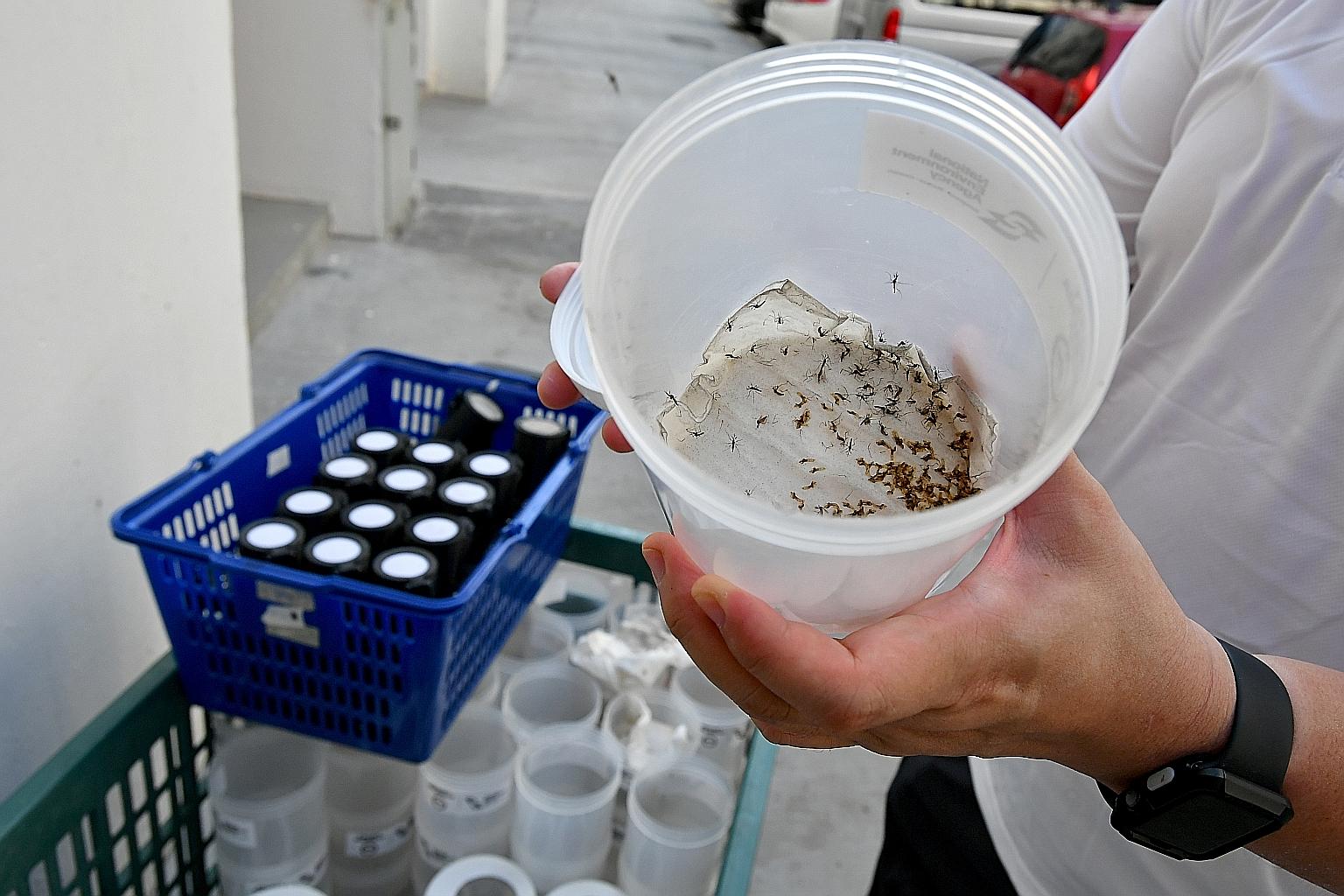For subscribers
Dengue cases this week may top 1,000 mark as infections continue to soar
This year's tally may exceed record number in 2013 amid worrying trend, says Amy Khor
Sign up now: Get ST's newsletters delivered to your inbox

Male Wolbachia-infected Aedes mosquitoes being released in Hong Kah North last week. The National Environment Agency has been releasing such sterile male Aedes mosquitoes in high-outbreak areas so that female mosquitoes they breed with will lay eggs that do not hatch.
ST PHOTO: LIM YAOHUI
Follow topic:
The number of dengue infections this week may well top 1,000, said Dr Amy Khor, Senior Minister of State for the Environment and Water Resources, and for Health.
Singapore has never had that many cases in a week.

